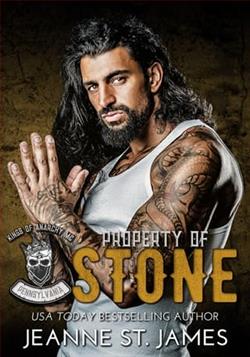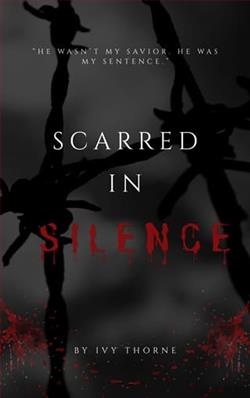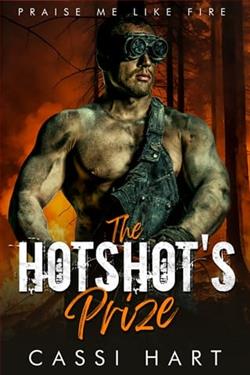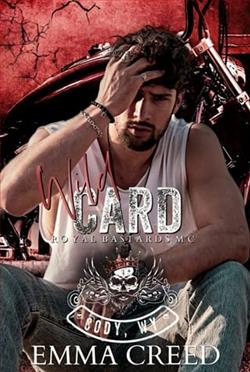Page 81 of The Children of Eve
“And when will it be over and done with?” Clemmie asked.
“When Blas Urrea is no more.”
“I still don’t see how taking the children will bring about his end.”
“I told you: they’re his good-luck charms. Without them, Urrea will be doubting himself, and that’s the beginning of the end for a man. But he’ll also be weakened in the eyes of his rivals once it’s discovered that he let the children be spirited away from under his nose, with hardly a drop of blood spilled. The word is already spreading that Urrea could be there for the taking.”
“The same word that says Devin Vaughn may also be? And by extension, us?”
Donnie Ray patted his daughter on the thigh.
“There’s a line between realism and pessimism,” he said. “Sometimes I fear you overstep it too often.”
Ahead of them, the house loomed, but no longer as welcoming to Clemmie as before.
“I’m serious, Poppa,” she said. “I really don’t want to share a house with her.”
“You’ll get used to it,” said Donnie Ray. “You always did say you wanted a little sister.”
CHAPTERLVI
In the basement of her home, Harriet Swisher took in the figures of the children through the glass of their respective cases. The girl had been swaddled tightly, so that only her face and feet were visible. She had died seated upright, the same position she currently occupied. Her features showed no signs of suffering or distress. She had passed away in her sleep, taken by the cold. There were, Harriet reflected, worse deaths.
The boy, by contrast, was less well-preserved. His features were distorted, barely recognizable as human, and his posture reminded Harriet of an insect that had died while trying to escape its chrysalis. The boy had been older than the others, and Hul was of the opinion that someone responsible for administering the sleeping draft might have misjudged the dose, causing him to wake before the cold took him. Unlike the girl, his death hadn’t been so easeful.
THE SWISHERS’ HOARD HADspread throughout the main house and expanded into a number of outbuildings and a series of adjoining tunnels, as well as an old bomb shelter built by Hul’s father during the Cuban Missile Crisis. The collection was displayed on collapsible tables,in lighted glass cases, and on tiered metal shelving, each item carefully labeled. While some of the pieces had been acquired from smugglers, or purchased from or swapped with other collectors, many had been found by the Swishers during decades of travel and digging. What they sold funded a modest lifestyle as well as further exploration and acquisition; for example, the sale of a pair of rare dwarf mammoth tusks, laced with vivianite, which they’d found in a wood in Alaska, had kept them solvent for a year and paid for a trip to Palenque, Mexico, to look for Mayan ruins. While it was known locally that the Swishers were collectors, and schoolkids were even occasionally invited to view arrowheads and fossils, the scale and value of the trove was the Swishers’ secret. While they thought of themselves not as criminals but as conservators, or even repositories of knowledge, they were aware that the law might not view them in quite the same way.
The Swishers’ basement functioned as a workshop, but it also contained minor artifacts deemed worthy of retention but not display, including a few partial animal and human skulls. These were kept in boxes on the shelves that lined the walls, with the central space being taken up until recently by a lightweight desk that Hul and Harriet used for cataloging, dusting, and repairing acquisitions. The desk had since been folded up and stored, to be replaced by the two children.
Had Harriet been a mother, or yearned for a child of her own, she might have felt more tenderness toward them, but she had no maternal instincts. She and Hul had never even owned a pet. Each had found in the other all the company they required, and they had passed their years together in a state of contentment colored by regular moments of passion. They still made love twice a week and had never lacked for conversation, or more important, felt the need for it when a shared silence would suffice. Meanwhile, their common fascination with the past—they had first met at a museum exhibition on the Incas—combined with a shared disregard for legal niceties when it came to adding totheir collection, had bonded them more strongly. Their intimates had long regarded them as separable only by death, and Harriet could have numbered their major arguments on the fingers of one hand.
But something dreadful had come between them in recent weeks. Harriet had known couples whose initial years of bliss were spoiled by the birth of their firstborn, even to the extent of causing a fatal fracture in the marriage. How strange, then, that the arrival of dead children into the Swisher home when the couple were in their final years should have led to a similar sundering in their relationship. Hul was like a parent who had become besotted by an infant daughter, so much so that it had led him to neglect his spouse, his every waking moment absorbed by thoughts of the girl. It would have been unhealthy even under normal circumstances, but was doubly so when the child in question had been dead for centuries. Christ, he thought he could hear the girl calling to him—or to someone else, which might be even worse. Harriet couldn’t decide which was the more appalling prospect: that Hul was finally succumbing to Alzheimer’s, or that he might not be and was instead receptive to a voice to which she was, or chose to be, deaf.
Harriet was no committed skeptic about the supernatural. She had grown up around women—they were always women, it seemed—with gifts of insight and foresight beyond natural explanation. She had, therefore, always tried to keep an open mind. The problem in this instance was that her husband had never previously shown any indication of preternatural abilities, being almost absurdly average. She had even occasionally wished for him to be marginally more sensitive, since he possessed that peculiarly male talent for failing to recognize when she was unhappy, or ignoring her in the hope that she’d get over it in time without his having to involve himself. Now the cries of a dead girl were keeping him from his sleep, and when he was away from the house she knew he was thinking only of the child.
So Harriet was jealous but also frightened. The disfigured boy was to have been the crowning glory of their collection—part paymentfor advice, contacts, and storage—but now she wished they had never entered into the bargain. The corpse was a ruin, interesting only as a curio, the kind that might have been placed in the second row of a traveling freak show alongside some taxidermied fusion of mammal and fish, the stitches visible if one looked closely enough. The boy wasn’t as desirable as his sister—well, Harriet called her that, but who could say they were even related? Nevertheless, they’d been together so long that it seemed easiest to regard them as siblings and have done with it. Whatever the truth, Harriet had decided she could do without the boy. Devin Vaughn had promised to compensate them for the loss; if it came to a choice between a preserved corpse and a marginally more comfortable old age, she’d accept the latter without blinking. More to the point, the boy didn’t speak to Hul in the same way as the girl. The boy didn’t speak at all. His soul, his spirit, whatever one chose to call it, might have been muted by the painful manner of his dying. If it was still in there, somewhere, it was a stunted, fluttering thing. Hul might have felt pity for him, but not love. The girl was different. Something inside that husk endured. Still, Hul had been prepared to settle for the boy—not that he had a whole lot of choice, not with wealthier men putting up the seed money, but the boy was more than he could ever have hoped to acquire by his own devices. This misshapen figure would be the culmination of a lifetime of acquisition, and all they’d had to do in return was provide advice before the raid and stash the four children in the months after.
But now the boy was to be burned, and Harriet could do as she wished with his ashes. Vaughn was interested only in what might follow the burning. Like Hul, he believed that some aspect of the children might have survived, an echo of what they once had been contained in their mummified corpses. It was a faith shared by Blas Urrea, although Harriet did not know if Urrea, like Hul, heard their voices or merely attributed his good fortune to the presence of the children in his life. Harriet very much hoped she never had the opportunity to inquire ofhim in person. If she found herself in Blas Urrea’s company, it would mean she was not long for this earth.
Of course, Harriet could simply have dumped the boy in the woods and he’d have begun to decay. She had no idea how long the process might take, but it was longer than Devin Vaughn wanted to wait. Vaughn’s orders were that the destruction should be rapid, and Harriet was to record it. She was to do this at 11 p.m. precisely: at that time, Vaughn would be seated in the presence ofhischild. Harriet didn’t know if whoever possessed the fourth child would be near those remains and listening also. Some questions were better kept to oneself.
Harriet was carrying the spare gas can from the car, but she didn’t think she’d require more than a sprinkle to set the boy alight. She knew from experience that the dark brown skin would be hard and leathery, yet capable of being bent under pressure and igniting rapidly. In her other hand, she held a crowbar. She didn’t want to waste time dismantling the equipment and trying to open the anoxic case. She’d shatter the top pane, pour in the gasoline, and let a match do the rest.
“You need to get back up here.”
It was Hul. He was standing at the top of the basement stairs, where he very much wasn’t supposed to be. She’d left him sleeping soundly, the plan being that he would wake to find the deed done and the boy reduced to ash and blackened bone.
“I said—”
“I heard you the first time,” Harriet replied, “and I didn’t like your tone, not one bit.”
When he spoke again, he was more conciliatory.
“Harriet,” he said, “please leave the boy alone and come upstairs.”
“I can’t.Wecan’t. Vaughn has ordered the body to be destroyed.”
“That’s not going to happen.”















